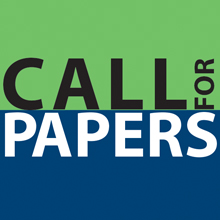
Learner Language, Corpus Linguistics and Mobile Learning
at Justus Liebig University Giessen, Germany, 20 July 2016
Pre-conference workshop of the 12th Teaching and Language Corpora Conference organised by the
Transforming European Learner Language into Learning Opportunities (TELL-OP) team
Call for Papers
TELL-OP is a Strategic Partnership that seeks to promote the take-up of innovative practices in European language learning (Data Driven Learning, DDL) by supporting personalised learning approaches that rely on the use of information and communication technology and open educational resources by bringing together the knowledge and expertise of European stakeholders in the fields of language education, corpus and applied linguistics, e-learning and knowledge engineering in order to promote cooperation and contribute to unleash the potential behind already available web 2.0 services to promote the personalised e-learning of languages in the contexts of higher and adult education, in particular, through mobile devices.
This pre-conference workshop will take place all day on Wednesday, 20 July 2016. It will start with an introduction to TELL-OP aims and outcomes including a beta version of the TELL-OP language learning application developed by the workshop organisers and end with a round table. As part of the workshop, we would like to invite stakeholders in the field to submit abstracts for paper presentations. We would like to invite educators, teachers, linguists, software developers, and second/foreign language researchers working at the interface of learner language, corpus linguistics and mobile learning.
Paper presentations will consist of a 20-minute talk followed by 10 minutes for questions and discussion. Papers reporting on empirical research should represent either completed work, or work in progress where some results can be reported. Abstracts on all topics related to the connection between learner language, corpus linguistics and mobile learning are welcome, especially those focusing on one of the following topics:
- (personalized) mobile learning
- DDL and mobile learning
- (learner) corpus research and their benefit for mobile learning
- teaching with mobile learning applications
- teaching and/or assessment with mobile learning devices
- automatic feedback in mobile learning devices
- corpus linguistics applications in mobile environments
We are welcoming paper presentations on any of these topics listed above. However, we are especially encouraging presentations that combine any of these topics. We request abstracts of 500 words (not counting the reference list) for paper presentations. Abstracts can be submitted to:
tellop@um.es
The deadline for abstract submission is 31 March 2016.
Notifications of acceptance will be sent out by 30 April 2016, along with further information on the workshop.
We hope to see you in Giessen in July 2016!
The organising committee consists of:
Pascual Pérez-Paredes, Dogan Bulut, Baki Dursun, Ibrahim Ercan, Sandra Götz, Stefanie Hehner, Fanny Meunier, Carlos Ordoñana, Karin Puga, Julie Van de Vyver, Pilar Aguado, Gregorio Martínez and Purificación Sánchez.
E-mail: tellop@um.es





